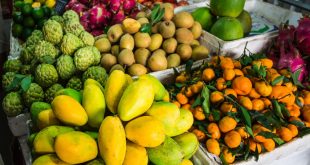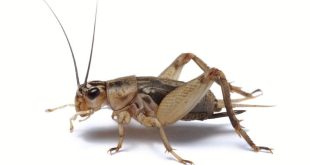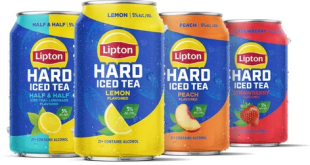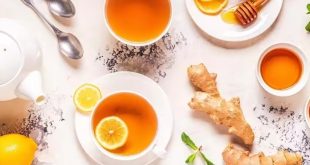Ding Tea is a popular chain serving bubble tea, a sweet and refreshing drink from Taiwan, typically made with tea, milk, and chewy tapioca pearls. Bubble tea, also known as boba tea, comes in various flavors and has become a global trend, with many variations such as fruit teas and creamy milk teas. Although Ding Tea, like many bubble tea chains, offers delicious and refreshing drinks, there are some disadvantages of Ding Tea to be kept in mind:
1. High Sugar Content:
Many of Ding Tea’s drinks, particularly flavored milk teas, fruit teas, and slushes, can be loaded with sugar. If consumed frequently, this can contribute to health issues such as obesity, diabetes, and heart disease. Some drinks can even contain more sugar than soda or candy bars, making them less healthy than traditional teas or other beverages.
1.2. Health Hazards of High Sugar Content
High sugar content in foods can pose various health hazards, especially when consumed in excess over time. Some of the key disadvantages and health risks associated with high sugar intake are increased risk of obesity, higher risk of type 2 diabetes, dental problems, increased risk of heart diseases, poor nutritional value, addiction-like effects, enhanced risk of fatty liver disease, and mental health concerns.
To mitigate these risks, limiting the consumption of high-sugar foods and beverages is important, focusing instead on a balanced diet rich in whole foods such as fruits, vegetables, and lean proteins. Sugar free alternatives should be prioritized to avoid sugar-induced diseases.
2. Artificial Ingredients:
Ding Tea often uses artificial sweeteners and preservatives in its drinks. These additives can affect the taste and have potential long-term health impacts, such as digestive issues or metabolic concerns.
2.1. Side Effects of Artificial Sweeteners and Preservatives
Artificial sweeteners are widely used in sugar-free and “diet” products, including drinks, candies, and even medications, to reduce calorie intake. While they are often deemed safe by regulatory bodies like the FDA, there are some concerns and potential side effects like digestive issues and some neurological issues.
Moreover, preservatives add shelf life and prevent the growth of bacteria, fungi, and other pathogens. While they help maintain food safety, some preservatives have been linked to health risks such as allergic reactions, hyperactivity (ADHD) in children, negative impact on gut health, and in most severe cases, the risk of cancer is also associated with the use of preservatives.
3. Caffeine Content:
Disadvantages of Ding Tea also include caffeinated beverages, which can be problematic for those sensitive to caffeine. Regular consumption can lead to caffeine dependence, and drinking tea late in the day can interfere with sleep.
3.1. Health Hazards of Excessive Caffeine:
While moderate caffeine intake is generally considered safe for most individuals, high doses may cause various negative effects such as anxiety and sleep disruptions, heart issues, digestive problems, addiction, and then withdrawal symptoms. Moreover, the use of caffeine is not safe for pregnant women as it can cause serious problems for the newborn.
4. Limited Nutritional Value:
While Ding Tea drinks are flavorful, they lack essential nutrients. Even fruit teas are typically made with syrups rather than real fruit, meaning they provide little in terms of vitamins or minerals.
For instance, fruit-flavored teas typically use fruit concentrates or syrups rather than actual fruit, reducing the health benefits. Even though some bubble tea shops may offer fruit-based toppings or fresh ingredients, the base drink itself is usually low in nutrients, contributing mostly to sugar and empty calories. Thus, while enjoyable in moderation, these beverages don’t significantly contribute to a balanced diet.
5. Calorie Count:
Ding Tea drinks are often high in calories, especially with toppings like tapioca pearls (boba), making them a poor choice for those trying to manage their weight. The tapioca pearls themselves are made from starch, primarily composed of carbohydrates and sugar, which significantly increases the calorie content of the drink. A standard serving of boba can add anywhere from 100 to 200 extra calories, depending on the size and amount used.
Additionally, many Ding Tea drinks are made with sweetened syrups, milk, or creamers that further boost the calorie count. For example, a typical milk tea with boba can contain upwards of 300-500 calories or more, depending on the sweetness level and size. If consumed frequently, these calorie-laden drinks can lead to weight gain, especially when combined with an overall diet high in processed foods and sugars. While bubble tea can be enjoyed as an occasional treat, it’s important to be mindful of portion sizes and ingredients, especially if you’re trying to manage your weight or maintain a balanced, healthy diet.
While Ding Tea offers a variety of delicious drinks, it’s important to consume them in moderation due to the health-associated disadvantages of Ding tea.
 Digital Business Trends Powering Growth With Digital Strategies.
Digital Business Trends Powering Growth With Digital Strategies. 


